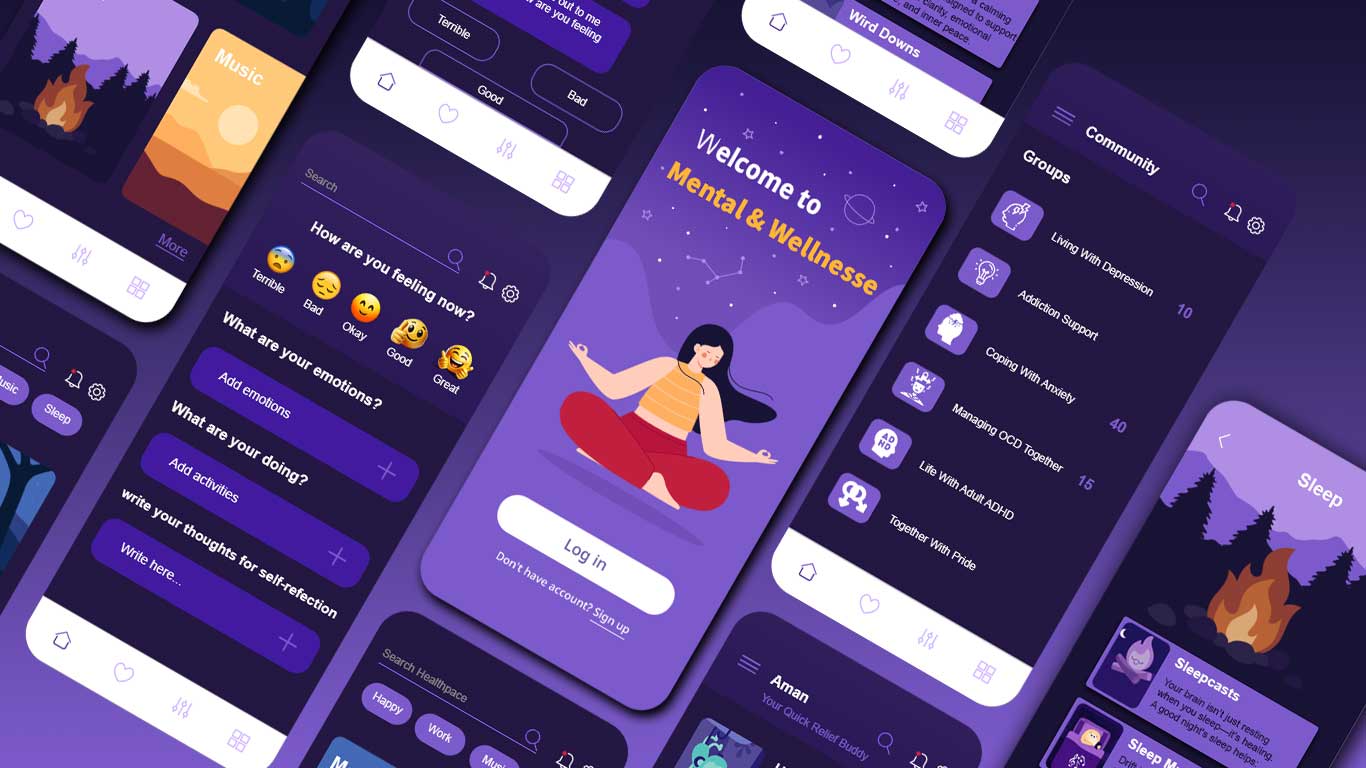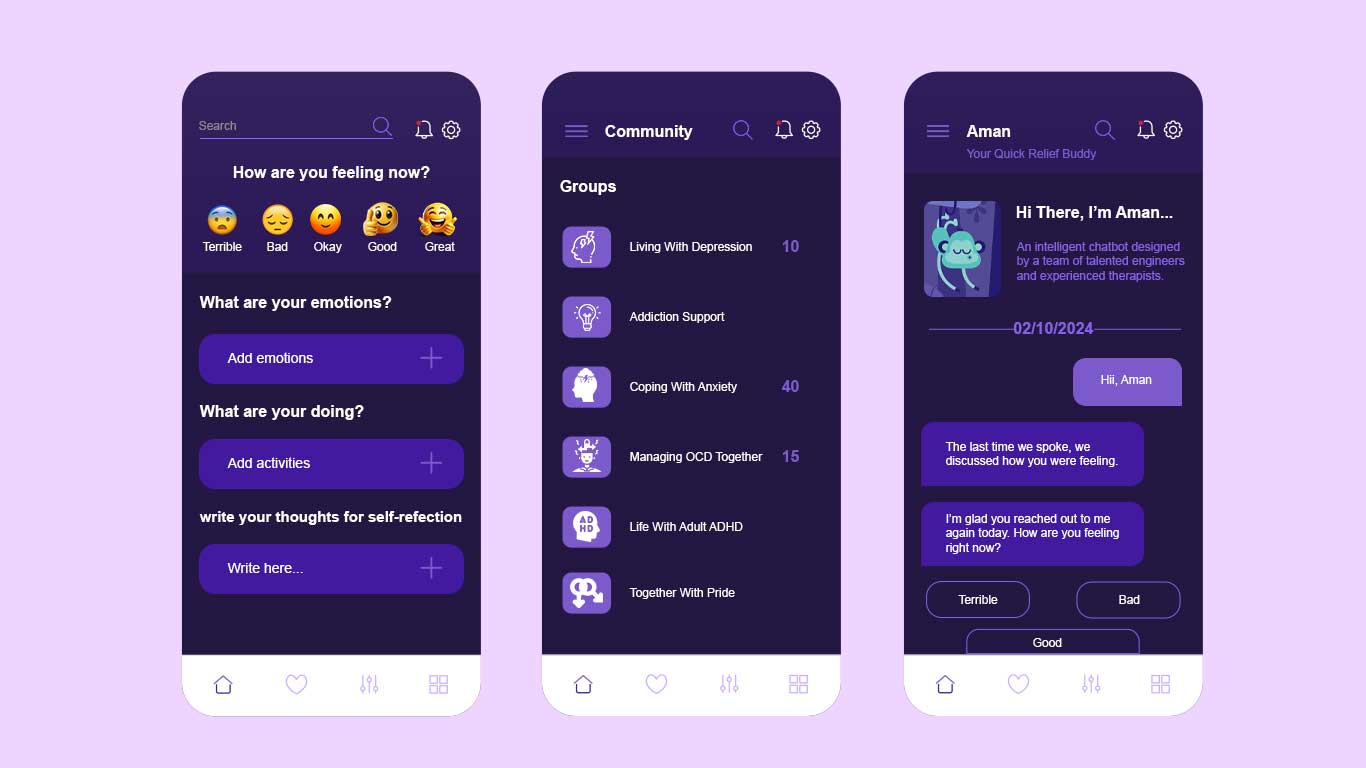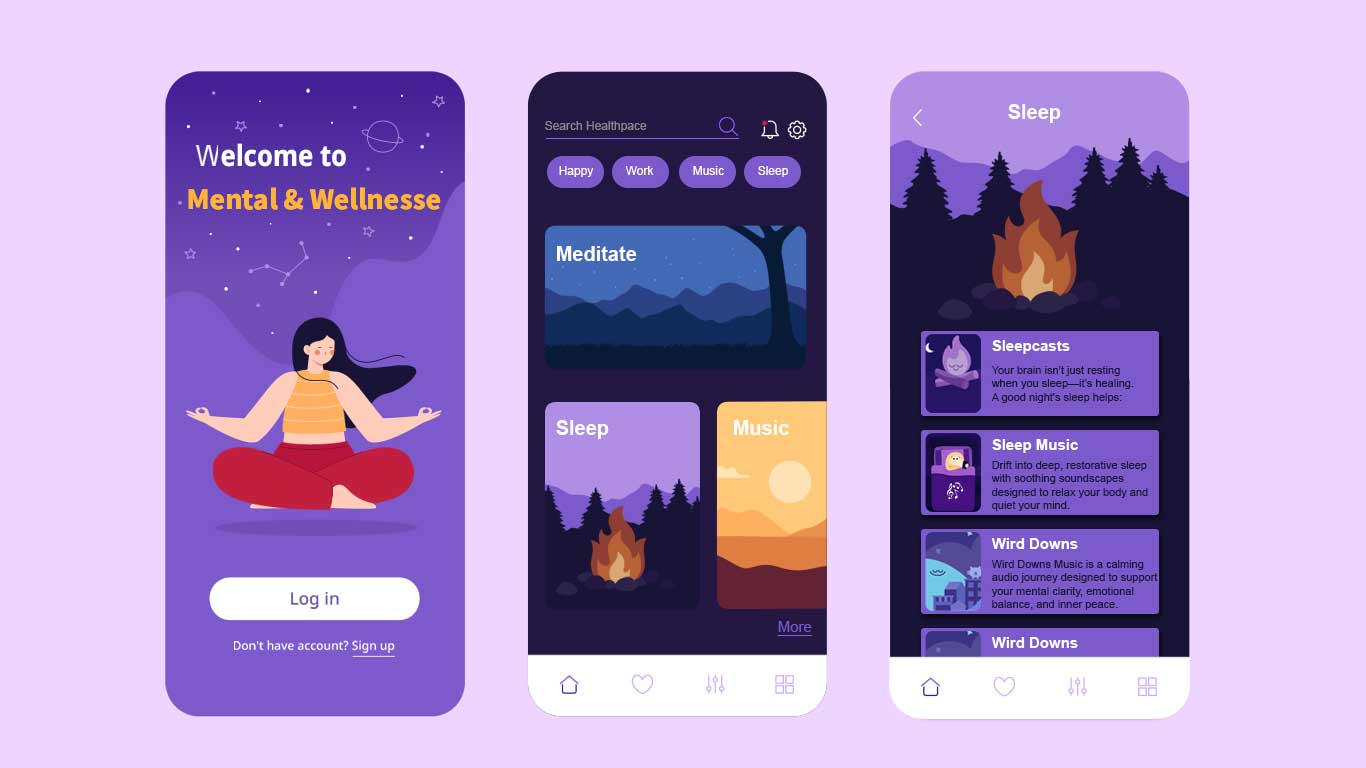Project Overview
The clinic approached us with a clear objective — to create a mobile app that would:
- Enable patients to easily book and attend therapy sessions, both virtual and in-person
- Allow therapists to securely access and manage patient records, treatment history, and notes
- Provide patients with tools to track moods, symptoms, and progress
- Ensure full HIPAA compliance, safeguarding sensitive mental health data
- Reduce administrative workload by automating appointments, notifications, and prescriptions
At the time, the clinic was relying on a combination of manual records, phone-based appointment scheduling, and third-party video tools that weren’t integrated or secure. This led to:
- Missed appointments and follow-ups
- Difficulty in tracking treatment progress
- Inconsistent communication between therapists and patients
- Growing compliance concerns
Challenges
- Fragmented workflow: Therapists were using multiple tools for scheduling, note-taking, and video calls, resulting in inefficiencies.
- Manual follow-ups: Appointment confirmations and reminders were handled manually, leading to a 35% no-show rate.
- Lack of patient engagement: Patients had no place to track their mental health journey or communicate between visits.
- Compliance risks: Sensitive data like therapy notes and prescription records were at risk without proper encryption or access control.
- Limited reporting: Admin staff had to compile reports manually for insights and audits, which was time-consuming.
Our Solution
We designed and developed a fully integrated mobile app, customized for psychiatric care and built with a focus on privacy, usability, and engagement.
Discovery & Planning
- Conducted stakeholder interviews with psychiatrists, therapists, admin staff, and a few patients
- Mapped existing workflows to identify inefficiencies and gaps
- Created wireframes and a UI design system based on accessibility and calmness (neutral tones, intuitive icons, simple layout)
Development Highlights
- React Native for cross-platform support (iOS & Android)
- .NET Core backend to manage logic and integrations securely
- SQL Server to manage patient records and session history
- Integrated Twilio Video for in-app teletherapy sessions
- Developed secure APIs with OAuth 2.0 and AES-256 encryption
- Applied role-based access controls to ensure that only authorized personnel could view sensitive data
Need a Custom Healthcare App or Portal?
Whether you're looking to streamline appointments, enable teletherapy, or digitize patient records — we can help you build a secure and user-friendly mobile app or web portal tailored for healthcare.
Let’s Build Your Healthcare AppKey Features Delivered
Teletherapy Module
Patients can attend secure video sessions directly from the app, with auto-generated links and pre-session reminders.
Mood & Symptom Tracker
A private journal where patients can log daily mood, sleep quality, medication side effects, and therapy goals. Therapists can view entries (if permission is granted) to tailor future sessions.
Appointment Scheduling & Reminders
Real-time calendar view for booking/rescheduling with automated SMS/email reminders and cancellation alerts.
Session Notes & Treatment History
Therapists can view past records, session notes, diagnoses, and adjust treatment plans—all stored in a secure cloud environment.
Digital Prescriptions
Generate and send prescriptions electronically with renewal notifications and pharmacy integrations.
Admin Dashboard
Centralized panel for staff to manage users, session history, analytics, and compliance reporting.
HIPAA Compliance Built-In
All patient data is encrypted, with secure login, activity logs, and restricted access protocols to meet U.S. healthcare data laws.



Results
- Automated reminders and teletherapy convenience improved attendance significantly.
- Patients appreciated the simplicity and flexibility of tracking moods, booking sessions, and receiving updates all in one place.
- Encrypted records and access controls reassured both the clinic and patients.
- Mood tracking, session history, and therapist-patient communication helped build long-term therapeutic relationships.
- Automated workflows freed staff from constant follow-ups and manual data entry, allowing them to focus on higher-value tasks.

.webp?lang=en-US&ext=.webp)

.webp?lang=en-US&ext=.webp)

